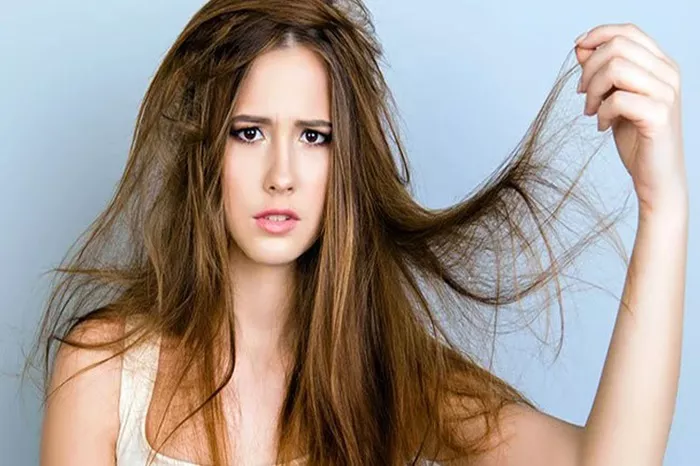Hair loss is a common concern. It can be distressing. Many factors can cause hair loss. Genetics, hormonal changes, medical conditions, and medications are well-known causes. But can a traumatic event cause hair loss? The answer is yes. Trauma can indeed lead to hair loss. This article explores the connection between trauma and hair loss.
Types of Hair Loss Related to Trauma
There are several types of hair loss linked to trauma. The most common ones are telogen effluvium, alopecia areata, and trichotillomania.
Telogen Effluvium
Telogen effluvium is a common form of hair loss. It occurs when more hairs than usual enter the resting phase. Normally, 85-90% of hair follicles are in the growing phase. The rest are in the resting phase. After a traumatic event, more hair follicles shift to the resting phase. This results in increased hair shedding. Telogen effluvium is usually temporary. Hair growth often resumes after a few months.
Alopecia Areata
Alopecia areata is an autoimmune disorder. It causes the immune system to attack hair follicles. This results in sudden hair loss. Stress and trauma can trigger alopecia areata. Hair loss often occurs in small, round patches. In severe cases, it can affect the entire scalp or body. The condition can be unpredictable. Hair may regrow, but it can also fall out again.
SEE ALSO: What Shampoo is Good for Alopecia Areata?
Trichotillomania
Trichotillomania is a psychological disorder. It involves an irresistible urge to pull out one’s hair. Stress and trauma can trigger trichotillomania. The condition can lead to noticeable hair loss. It often affects the scalp, eyebrows, and eyelashes. Treatment usually involves behavioral therapy and medication.
The Connection Between Trauma and Hair Loss
Trauma can have a significant impact on the body. It can affect physical and mental health. Hair loss is one of the possible consequences. Here’s how trauma can lead to hair loss.
Physical Trauma
Physical trauma includes injuries and surgeries. These events can stress the body. Stress can disrupt the hair growth cycle. It can cause more hair follicles to enter the resting phase. This can lead to telogen effluvium. In some cases, the trauma can damage hair follicles directly. This can result in permanent hair loss.
Emotional Trauma
Emotional trauma includes events like the loss of a loved one, divorce, or a major life change. These events can cause significant stress. Stress can trigger conditions like telogen effluvium and alopecia areata. Emotional trauma can also lead to trichotillomania. The urge to pull out hair can be a coping mechanism. It can provide a temporary sense of relief.
Chronic Stress
Chronic stress can have a cumulative effect. It can exacerbate hair loss conditions. Chronic stress can keep the body in a state of heightened alert. This can disrupt the hair growth cycle. It can also weaken the immune system. This can increase the risk of autoimmune conditions like alopecia areata.
How to Manage Hair Loss After Trauma
Hair loss after trauma can be distressing. It’s important to address both the hair loss and the underlying trauma. Here are some steps to take.
Seek Professional Help
Consult a healthcare professional. They can diagnose the type of hair loss. They can also recommend appropriate treatments. This might include medications, topical treatments, or therapies.
Address the Underlying Trauma
It’s important to address the underlying trauma. This might involve therapy or counseling. Talking to a mental health professional can help. They can provide coping strategies. They can also help process the traumatic event.
Reduce Stress
Reducing stress can help manage hair loss. Techniques like mindfulness, meditation, and yoga can be beneficial. Regular exercise can also help reduce stress. It can improve overall well-being.
Maintain a Healthy Diet
A healthy diet can support hair growth. Ensure you get enough vitamins and minerals. This includes iron, zinc, and biotin. A balanced diet can improve overall health. It can also support hair growth.
Be Gentle with Your Hair
Handle your hair gently. Avoid harsh treatments. This includes excessive brushing, heat styling, and chemical treatments. Use gentle hair care products. Protect your hair from further damage.
Potential Treatments for Hair Loss
There are several treatments available for hair loss. The effectiveness can vary. It depends on the type and severity of hair loss.
Medications
Medications can help manage hair loss. Minoxidil is a common over-the-counter treatment. It can stimulate hair growth. Finasteride is a prescription medication. It can help reduce hair loss in men. Consult a healthcare professional before starting any medication.
Topical Treatments
Topical treatments can be applied directly to the scalp. They can help stimulate hair growth. Examples include minoxidil and corticosteroid creams. These treatments can be effective for certain types of hair loss.
Therapies
Therapies like light therapy and platelet-rich plasma (PRP) therapy can promote hair growth. Light therapy uses red light to stimulate hair follicles. PRP therapy involves injecting platelet-rich plasma into the scalp. Both therapies can be effective for some individuals.
Hair Transplants
Hair transplants are a surgical option. They involve transplanting hair follicles from one part of the scalp to another. This can be an effective treatment for permanent hair loss. It can provide a more permanent solution.
Conclusion
Trauma can indeed cause hair loss. Physical and emotional trauma can disrupt the hair growth cycle. This can lead to conditions like telogen effluvium, alopecia areata, and trichotillomania. Managing hair loss after trauma involves addressing both the hair loss and the underlying trauma. Seek professional help, reduce stress, maintain a healthy diet, and be gentle with your hair. There are also several treatments available for hair loss. Consult a healthcare professional to determine the best approach for your situation.

